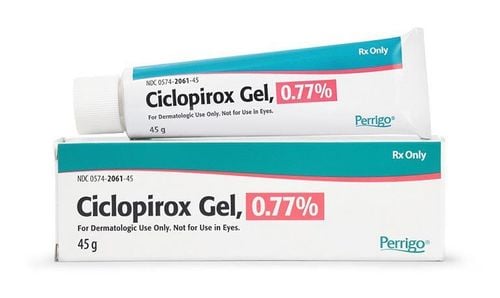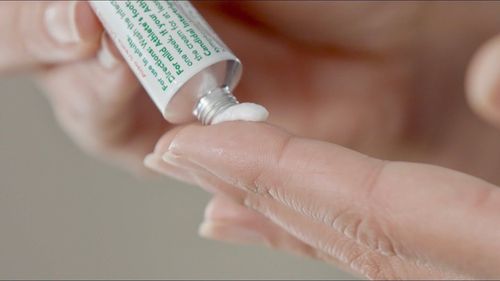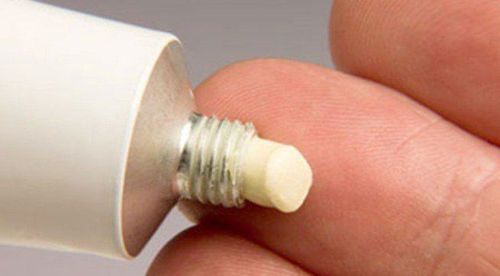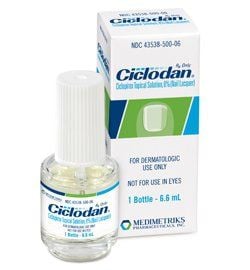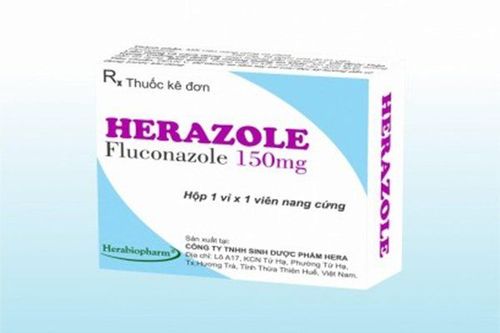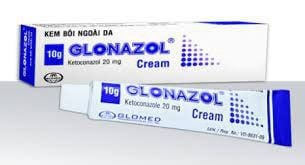This is an automatically translated article.
Scalp fungus causes itching, dandruff, hair loss... uncomfortable for patients, making them lose confidence and fear in communication. There are many factors that cause scalp fungus, patients need to find out exactly the cause to use effective topical antifungal medication. So can topical antifungal medications cure the disease?
1. Causes of Scalp Fungus
Scalp fungus is an infection of the scalp caused by a fungus and can occur at any age. A healthy person can get a fungal infection from the patient or from the environment, causing itchiness and discomfort in the scalp, worse, causing severe inflammation, infection, hair loss... even scarring can be left behind. permanent, affect the aesthetics.
Each type of fungal agent causing scalp fungus will have different treatment, so it is necessary to distinguish each type for an effective treatment:
1.1. Scalp fungal infections caused by Trichophyton The scalp area of people infected with Trichophyton fungus will appear small, scattered nodules forming patches of damaged, scaly scalp. Areas of healthy hair interspersed with broken hair appear more and more. As the fungal lesion heals, the flakes off will become a temporary bald patch.
1.2. Scalp fungal infections caused by Trichosporon and Pierdraiahortai The cause of this name is because the characteristic symptom of the disease is that on the hair shafts (about 2-3 cm from the root) there are soft round seeds, brown or black, similar to lice eggs. Unlike scalp fungus caused by Trichophyton, patients do not lose hair because the fungus only grows in the hair shaft, and the itching caused by trachoma is not much.
Not only in humans, dogs, cats and other animals can also contract this fungus and easily infect humans through skin and close contact. The disease often appears in people who do not have clean personal hygiene, often come into contact with infected cats and dogs.
Based on symptoms and tests such as: scalp scab or hair trauma, the doctor can distinguish the fungus causing the disease to give a suitable treatment for scalp fungus with oral drugs or topical antifungal medication.
2. How to treat scalp fungus - Does topical antifungal medication treat the fungus thoroughly?
Scalp fungus is a very common condition with the main cause being poor head hygiene or frequent wet hair when going to bed, causing uncomfortable itching, and prolonged hair loss that makes the patient lose self-control. believe. If a fungal infection of the scalp is just beginning, topical antifungal medications are often prescribed to relieve itching and inflammation of the skin, prevent scaling, and eliminate symptoms without the need for treatment. to medication. Depending on the specific case, the doctor will prescribe the appropriate topical antifungal medication, the patient should not arbitrarily use the topical antifungal medication without the doctor's prescription.
Ketoconazole topical is widely used. However, in order for topical fungicides to completely treat scalp fungus, how to use the drug, for how long, it is necessary to consult a dermatologist. For each different type of fungus, the time to use topical fungicides is different. If the condition is long and recurrent, topical fungicides may not work optimally, patients need to take oral medications.
With the treatment of scalp fungus, oral medication is often preferred because the patient must cut off the hair in the affected scalp area to use topical antifungal medication, and the effectiveness of topical antifungal medication is not high. in severe fungal infections.
However, whether it is topical or oral medication, the patient also needs to follow the doctor's instructions. Arbitrary use of topical fungicides can lead to overdose or premature discontinuation, thereby increasing the risk of drug resistance, making later treatment more difficult.
3. What to note when treating scalp fungus?
One thing that the scalp fungus patient should note is that during the treatment with topical fungicides and oral medications, if you have to treat some other diseases, you need to contact your doctor immediately to avoid the same problem. interactions between drugs. If the patient has a history of any disease, it is important to discuss the details with the treating doctor right from the start. In order to limit the persistence of the fungus, patients should not use shampoos with high anti-dandruff properties, should not scratch strongly to scratch the scalp, always keep the hair dry and clean. After washing your hair, you should rinse with plenty of water, dry your hair after washing or returning from going out in the rain. Do not wear a hat / hat that is too tight and incubate your hair for too long, this will make the hair wet and easy to breed fungus. Avoid sharing towels, hairbrushes, hats with others, especially those with dandruff or symptoms of scalp fungal disease. Pets can be a source of fungal infections of the skin, so if you see on the skin, pet hair shows symptoms of scaling, hair loss, red inflammation... it is necessary to quickly bring the pet to the veterinarian for examination. If you are sick, you need to be treated and isolated, to avoid spreading the fungus to family members. It is best when there is a phenomenon of scalp fungus, the patient should go to a medical facility or hospital to be examined by a doctor and prescribe a treatment method. Early intervention will help the treatment process achieve good results and save costs.
Please dial HOTLINE for more information or register for an appointment HERE. Download MyVinmec app to make appointments faster and to manage your bookings easily.




